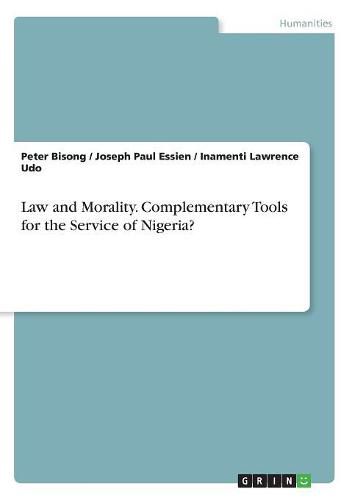Document from the year 2017 in the subject Sociology - Political Sociology, Majorities, Minorities, language: English, abstract: Nigeria is a country that bribery, corruption and lawlessness reign supreme. This is the reason why the country has always been named among the most corrupt countries in the world. The establishment of EFCC and ICPC gave hope to many concerned Nigerians, that corruption has finally been given its long overdue attention in the country. These efforts at combating corruption have however failed for corruption and other social ills go on apace with no signs that their end is near. It is for this reason that we believe, that the law alone cannot bring sanity to the Nigerian social system. It is the dearth of morality that has made Nigeria the way it is. This is shown by the fact that Nigerians hail greedy and corrupt politicians as heroes and gives them chieftaincy titles and awards - pointing to an alarming moral emptiness in most Nigerians. This shows that Nigeria has lost the basic sense of what is right and wrong. The social state of Nigeria shows glaringly that law and morality must go together for a country to walk straight. This incidentally is the thesis of this work. Law and morality are inseparable entities in any social setting. Attempt to separate them would lead the country to experience what Nigeria is experiencing at present. We would argue in this work that a better Nigeria would only emerge if morality is made to co-exist alongside law. This responsibility we believe falls heavily on the various religious bodies as well as the government.





